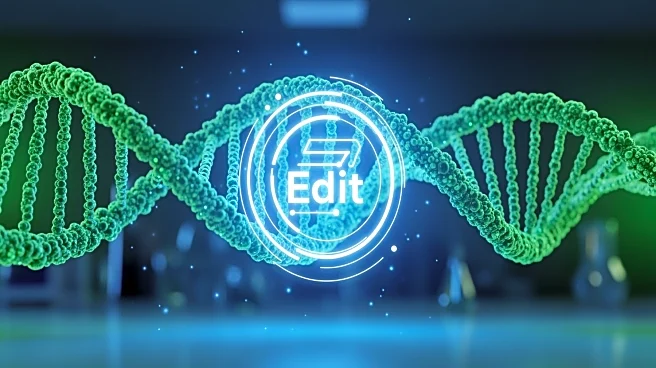What's Happening?
A recent clinical trial funded by CRISPR Therapeutics has demonstrated promising results in lowering cholesterol levels using a gene-editing treatment. The trial involved 15 participants with high cholesterol who received a single dose of the treatment,
resulting in significant reductions in LDL cholesterol and triglycerides. This 'one and done' approach aims to provide a long-term solution for heart disease risk factors. The trial's findings are set to be presented at the American Heart Association meeting and published in the New England Journal of Medicine. Despite the promising results, the field faces challenges, including safety concerns highlighted by a patient death in a separate gene-editing trial.
Why It's Important?
The trial represents a significant advancement in the use of gene-editing technology to address common health issues like heart disease, the leading cause of death in the United States. By potentially offering a one-time treatment, this approach could revolutionize how chronic conditions are managed, reducing the need for ongoing medication. However, the technology's safety remains a critical concern, as evidenced by recent setbacks in other trials. The success of this trial could pave the way for broader applications of gene-editing in medicine, but it also underscores the need for careful monitoring and regulation to ensure patient safety.
What's Next?
The treatment is expected to undergo further testing in a larger population, with a phase 3 trial potentially starting within a year. Researchers will focus on ensuring the safety and effectiveness of the treatment in diverse groups. The trial's expansion will be closely monitored, especially in light of recent safety concerns in the gene-editing field. The results could influence future regulatory decisions and the development of similar treatments for other common diseases.

















